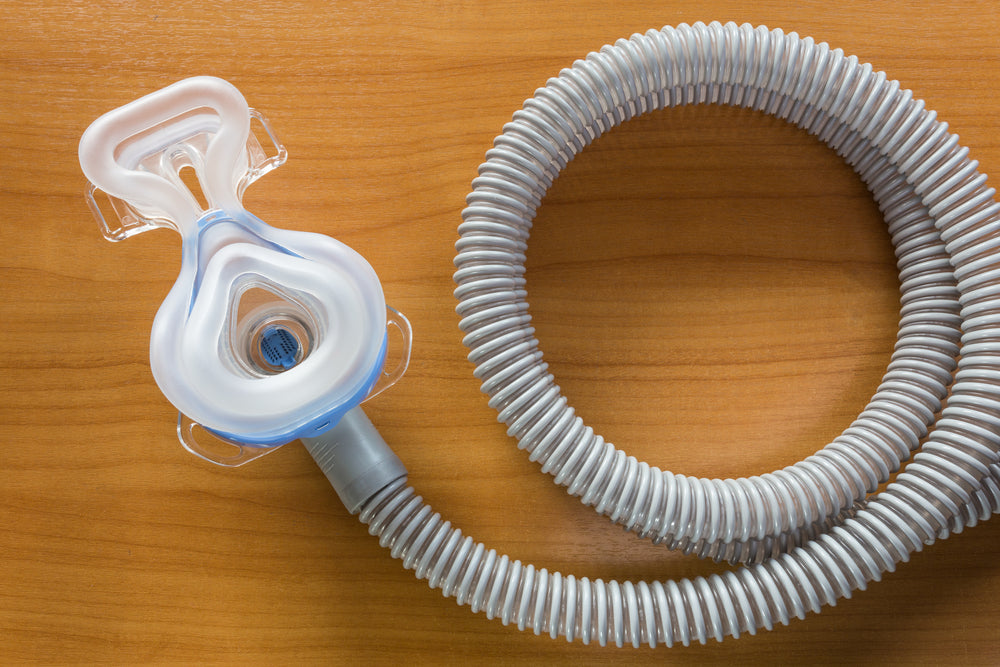If you suffer from a form of sleep apnea, your doctor may recommend that you use a breathing machine at night to help provide the airflow you need — reducing your breathing cessations and allowing for a deeper night’s sleep.
You might be skeptical about using a breathing machine, but with a simple mask that is worn throughout the night, you’ll receive pressure that makes it easier for you to breathe. This treatment method is known as positive airway pressure (PAP) therapy.
When undergoing PAP therapy, your doctor will help you determine which type of breathing machine is the right choice for your sleep apnea: CPAP, AutoPAP, or BiPAP.
What Is CPAP?
The most common type of breathing machine used to treat sleep apnea is the continuous positive airway pressure machine, otherwise known as CPAP. If you suffer from obstructive sleep apnea, CPAP therapy is likely going to be the recommended treatment by your doctor because it can help deliver the necessary air to your lungs in a continuous manner throughout the night.
Unlike the varying pressure in the AutoPAP machine, CPAP delivers steady, continuous pressure for both inhalation and exhalation to the individual. However, the pressure of the airflow can be adjusted based on specific needs. The airflow is delivered through the patient’s nostril and down the throat to ensure that the airway remains open while the individual sleeps.
Although CPAP is the most common way to treat sleep apnea, it can lead to some discomfort because of the continuous pressure. If that’s the case for you, your doctor may recommend that you reduce the pressure or consider another option such as the BiPAP machine.
What Is AutoPAP?
Depending on how frequently you stop breathing throughout the night, your doctor may recommend an AutoPap machine, otherwise known as an auto-adjustable positive airway pressure machine. This breathing machine can provide varying pressure while you sleep to match exactly what you need based on the way you inhale. With a range of pressure points to choose from, APAP is extremely flexible and makes it easy for you to find your ideal setting.
An AutoPAP machine is usually recommended if you’re someone who requires different pressure based on your sleep cycles, you sleep in a position that disrupts airflow, or you use sleep sedatives.
What Is BiPAP?
Instead of providing continuous pressure all night, a bi-level positive air pressure machine (also known as BiPAP) provides different pressure rates for both inhalation and exhalation. BiPAP delivers airflow similarly to CPAP but delivers two different pressures which is a major benefit to those who need some additional respiratory support.
If the patient with sleep apnea is also dealing with congestive heart failure or neurologic disorders, their doctor may prescribe them BiPAP therapy.
Is APAP, CPAP or BiPAP the Right Choice for Me?
APAP, CPAP and BiPAP are great solutions for those suffering from sleep apnea. While CPAP therapy is typically the first choice for most doctors, your physician can walk you through which breathing machine is the right choice for your specific condition.
Each of these breathing machine options can relieve symptoms for patients. Reach out to your doctor to determine which PAP machine aligns with your specific type of sleep apnea to ensure you reap the most benefits from the therapy. If you feel AutoPAP therapy is the best choice to move forward with, ApneaMed can supply the breathing machine you need.

